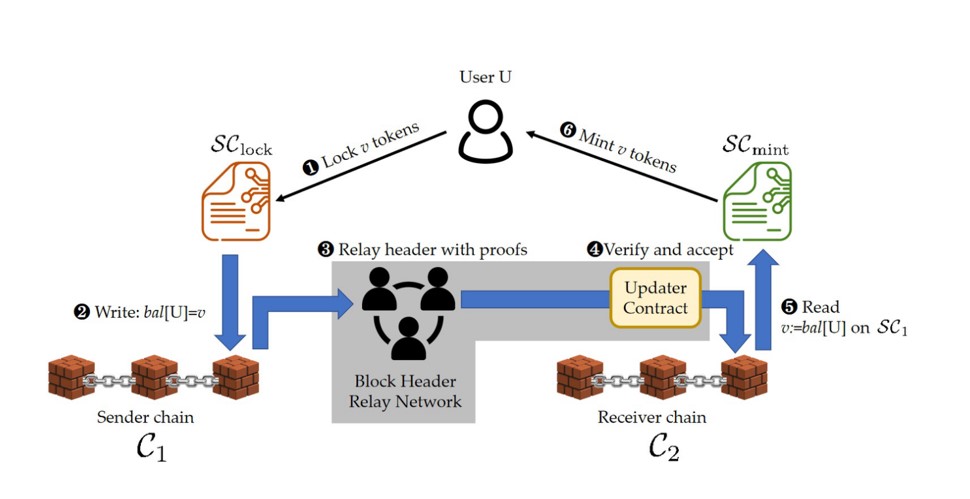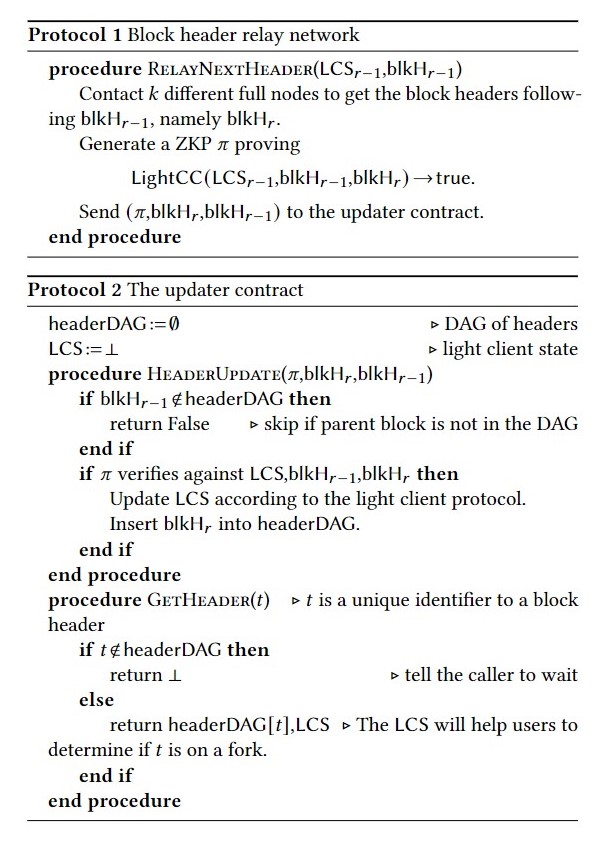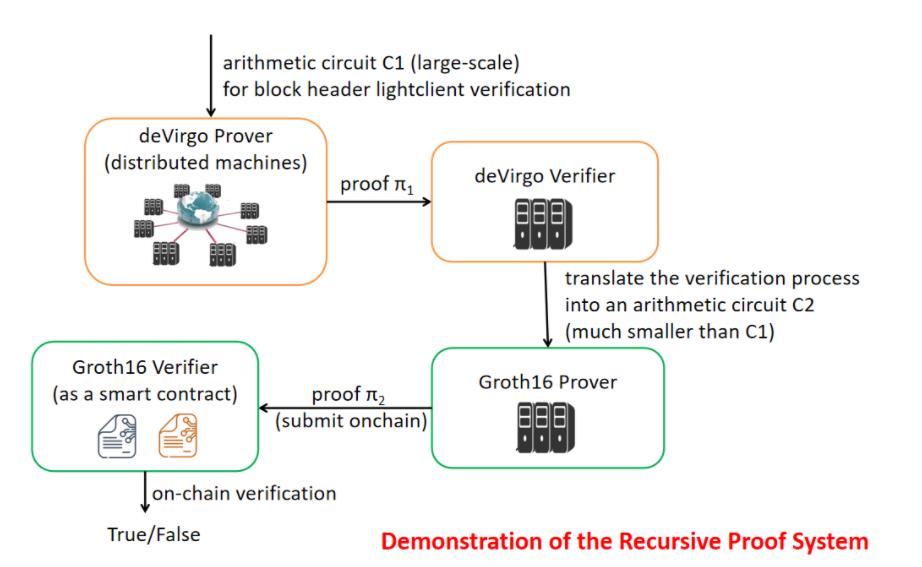
zkBridge: Trustless Cross-chain Bridges Made Practical
Tiancheng Xie · Jiaheng Zhang · Zerui Cheng · Fan Zhang · Yupeng Zhang · Yongzheng Jia · Dan Boneh · Dawn Song | https://arxiv.org/pdf/2210.00264.pdf | ACM Conference on Computer and Communications Security (CCS) 2022
Blockchain ecosystem has seen growing heterogeneity where a variety of blockchains co-exist. And cross-chain bridge is a necessary and critical building block in this multi-chain ecosystem. Existing solutions, however, rely on strong trust assumptions that significantly lower the security. Recurring attacks against bridges have cost users more than 1.5 billion USD to date.
In this paper, we present zkBridge, the first trustless, permissionless, extensible, universal, and efficient cross-chain bridge. With succinct proofs, zkBridge not only guarantees strong security without external assumptions, but also significantly reduces on-chain verification cost. We propose novel succinct proof protocols that are orders-of-magnitude faster than existing solutions for workload in zkBridge. With a modular design, zkBridge enables a broad spectrum of applications, including message passing, token transferring, and other computational logic operating on state changes from different chains. We have already implemented zkBridge between certain chains and evaluated its end-to-end performance.


